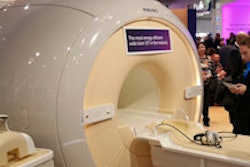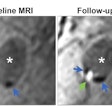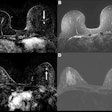Philips Healthcare is launching a new product that provides MRI-based treatment planning for radiation therapy (RT) of prostate cancer.
Called Magnetic Resonance for Calculating Attenuation (MRCAT), the product works with the company's Ingenia MR-RT scanners and is designed for radiology departments that want to use MRI as their primary imaging modality for prostate cancer radiation therapy.
Prostate cancer is the most common cancer among men in the U.S., causing about 27,540 deaths a year, Philips noted. Current clinical practice for treating prostate cancer with radiation therapy relies on a combination of MRI and CT, but this can lead to problems such as image misalignment and registration issues that could affect targeting and treatment.
Using only MRI for treatment simulation would not only reduce the number of additional scans for patients, it would also improve physician workflow and reduce provider costs.
MRCAT lets physicians use a single modality that provides high-quality soft-tissue contrast for target delineation, as well as density information for dose calculations. To produce the density information standard for CT, Philips has integrated imaging protocols to obtain CT-like images on the MR console.
MRCAT has received U.S. Food and Drug Administration 510(k) clearance and the CE Mark, and is available globally.



.fFmgij6Hin.png?auto=compress%2Cformat&fit=crop&h=100&q=70&w=100)




.fFmgij6Hin.png?auto=compress%2Cformat&fit=crop&h=167&q=70&w=250)











